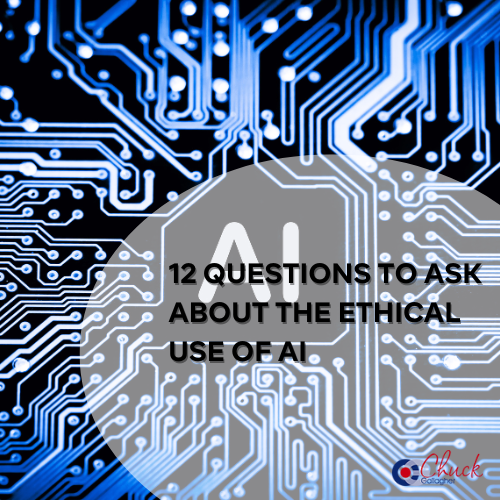 As a business ethics keynote speaker, one of the most significant shifts I’ve seen in recent years is the increased use of data analytics in compliance and ethics programs. While businesses are eager to leverage the power of data to enhance decision-making, there’s a growing misunderstanding about what true data analytics entails, and how it can be used ethically to improve compliance.
As a business ethics keynote speaker, one of the most significant shifts I’ve seen in recent years is the increased use of data analytics in compliance and ethics programs. While businesses are eager to leverage the power of data to enhance decision-making, there’s a growing misunderstanding about what true data analytics entails, and how it can be used ethically to improve compliance.
Many organizations have adopted data-driven approaches to track compliance metrics, but the reality is that much of what they call “data analytics” is little more than basic key performance indicators (KPIs). These KPIs, while important, are often surface-level statistics—how many trainings were completed, how many third parties were vetted, or how many hours were spent on compliance activities. This is not the transformative use of data analytics that compliance and ethics experts envision.
What Real Data Analytics Should Look Like
True data analytics in the compliance space means digging deeper—using advanced technologies and methodologies to detect trends, predict risks, and identify ethical breaches before they escalate. For instance, companies should be using sophisticated algorithms and machine learning to identify patterns of potential fraud, corruption, or misconduct that might otherwise go unnoticed. This is particularly important in industries like healthcare, finance, and technology, where ethical lapses can have catastrophic consequences.
One of the best examples of this comes from recent conversations with ethics and compliance professionals who’ve emphasized the importance of treating data as a strategic asset. Compliance officers are no longer just monitoring static metrics but are expected to understand the underlying trends in employee behavior, third-party interactions, and regulatory adherence. The challenge is that many companies remain stuck in outdated models of compliance, using spreadsheets and simple KPI reports that do little to prevent real risks.
Why Ethical Use of Data Analytics Matters
The ethical use of data analytics is crucial. Misusing or misinterpreting data can lead to wrong decisions, such as falsely identifying employees or vendors as risks based on incomplete information. Moreover, there’s an ethical responsibility in how this data is collected, stored, and analyzed. Privacy concerns are paramount—especially with the rise of artificial intelligence (AI) and machine learning tools that can inadvertently infringe on individual rights if not properly governed.
In today’s environment, using data to inform ethical decision-making is about more than just compliance with laws. It’s about building a culture of transparency, accountability, and foresight. When done correctly, data analytics can help companies anticipate potential ethical breaches, foster a proactive approach to risk management, and ultimately strengthen their integrity in the marketplace.
The Role of Leadership
Leadership plays a pivotal role in this transformation. It’s not enough to implement new technologies and tools; leaders must be actively involved in understanding how data analytics can enhance ethics and compliance. This requires investment not only in technology but also in training and cultivating a mindset that sees data as a vital resource for maintaining ethical standards.
Many organizations are turning to compliance officers who have expertise in both ethics and technology—understanding how data analytics can be integrated into the broader framework of corporate responsibility. The best results come from interdisciplinary collaboration: lawyers, business executives, and data scientists working together to ensure that compliance efforts are both effective and ethical.
Conclusion and Call to Action
As businesses continue to embrace data analytics, there’s an ethical responsibility to ensure that these tools are used correctly and responsibly. By elevating data analytics beyond simple KPIs and focusing on deeper insights, companies can better anticipate risks, safeguard ethical behavior, and foster a culture of integrity. It’s not enough to ask *what can we do* with data analytics—the real question is *what should we do* to ensure we’re using these tools ethically and effectively.
Comments and Questions
– What steps has your organization taken to integrate advanced data analytics into your compliance programs?
– How do you ensure that your use of data analytics respects privacy and adheres to ethical guidelines?
– What challenges have you faced in transitioning from basic KPIs to more sophisticated data analytics?
– How can leadership better support the ethical use of data in compliance efforts?
By reflecting on these questions, businesses can not only improve their compliance programs but also build stronger, more ethical organizations
For further discussion or insights, feel free to reach out during the Q&A or follow up with me directly. Let’s dive into how we can leverage the power of data for better ethical practices in business.


